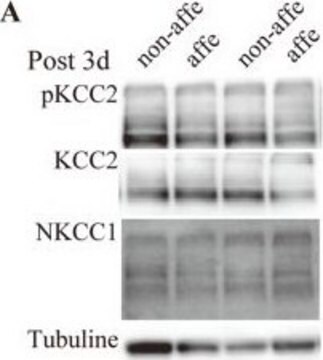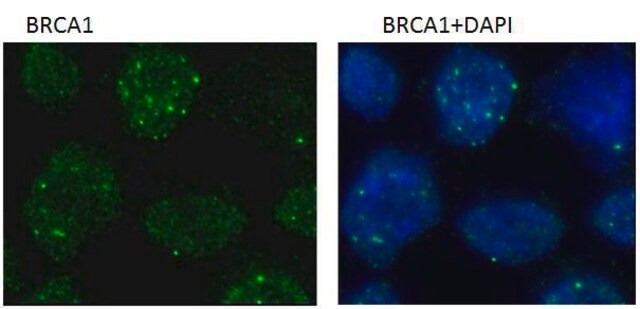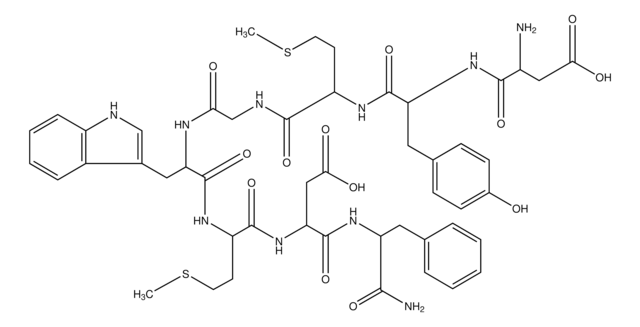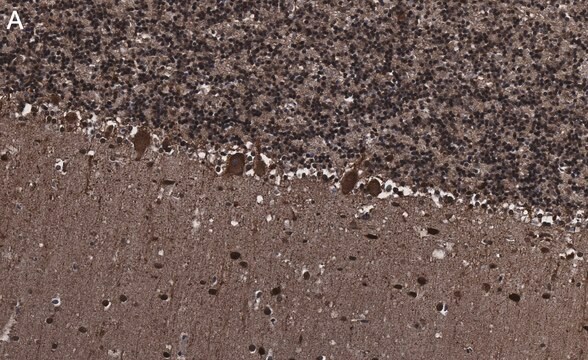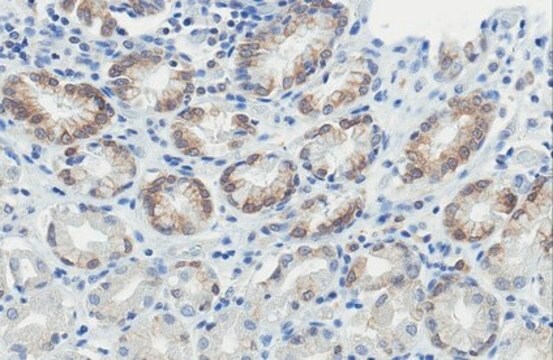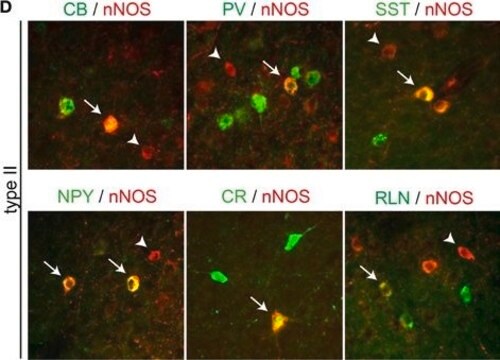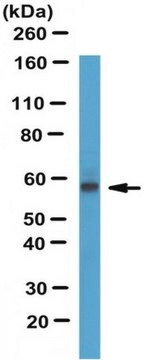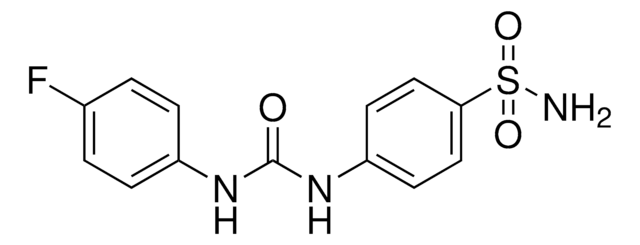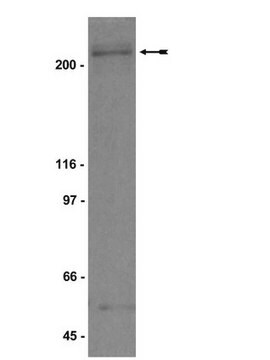MABN88
Anti-K+/Cl- Cotransporter (KCC2) Antibody, clone N1/12
clone N1/12, from mouse
Synonyme(s) :
Electroneutral potassium-chloride cotransporter 2, Erythroid K-Cl cotransporter 2, Neuronal K-Cl cotransporter, electroneural potassium-chloride cotransporter 2, solute carrier family 12, potassium-chloride transporter), member 5
About This Item
Produits recommandés
Source biologique
mouse
Niveau de qualité
Forme d'anticorps
purified immunoglobulin
Type de produit anticorps
primary antibodies
Clone
N1/12, monoclonal
Espèces réactives
rat, human
Technique(s)
immunohistochemistry: suitable
Isotype
IgG2aκ
Numéro d'accès NCBI
Numéro d'accès UniProt
Conditions d'expédition
wet ice
Modification post-traductionnelle de la cible
unmodified
Informations sur le gène
human ... SLC12A5(57468)
rat ... Slc12A5(171373)
Description générale
Spécificité
Immunogène
Application
Neuroscience
Ion Channels & Transporters
Qualité
Immunohistochemistry Analysis: 1:300 dilution of this antibody detected KCC2 in rat cortex area A-3 tissue.
Description de la cible
Forme physique
Stockage et stabilité
Remarque sur l'analyse
Rat cortex area A-3 tissue
Autres remarques
Clause de non-responsabilité
Vous ne trouvez pas le bon produit ?
Essayez notre Outil de sélection de produits.
Code de la classe de stockage
12 - Non Combustible Liquids
Classe de danger pour l'eau (WGK)
WGK 1
Point d'éclair (°F)
Not applicable
Point d'éclair (°C)
Not applicable
Certificats d'analyse (COA)
Recherchez un Certificats d'analyse (COA) en saisissant le numéro de lot du produit. Les numéros de lot figurent sur l'étiquette du produit après les mots "Lot" ou "Batch".
Déjà en possession de ce produit ?
Retrouvez la documentation relative aux produits que vous avez récemment achetés dans la Bibliothèque de documents.
Notre équipe de scientifiques dispose d'une expérience dans tous les secteurs de la recherche, notamment en sciences de la vie, science des matériaux, synthèse chimique, chromatographie, analyse et dans de nombreux autres domaines..
Contacter notre Service technique